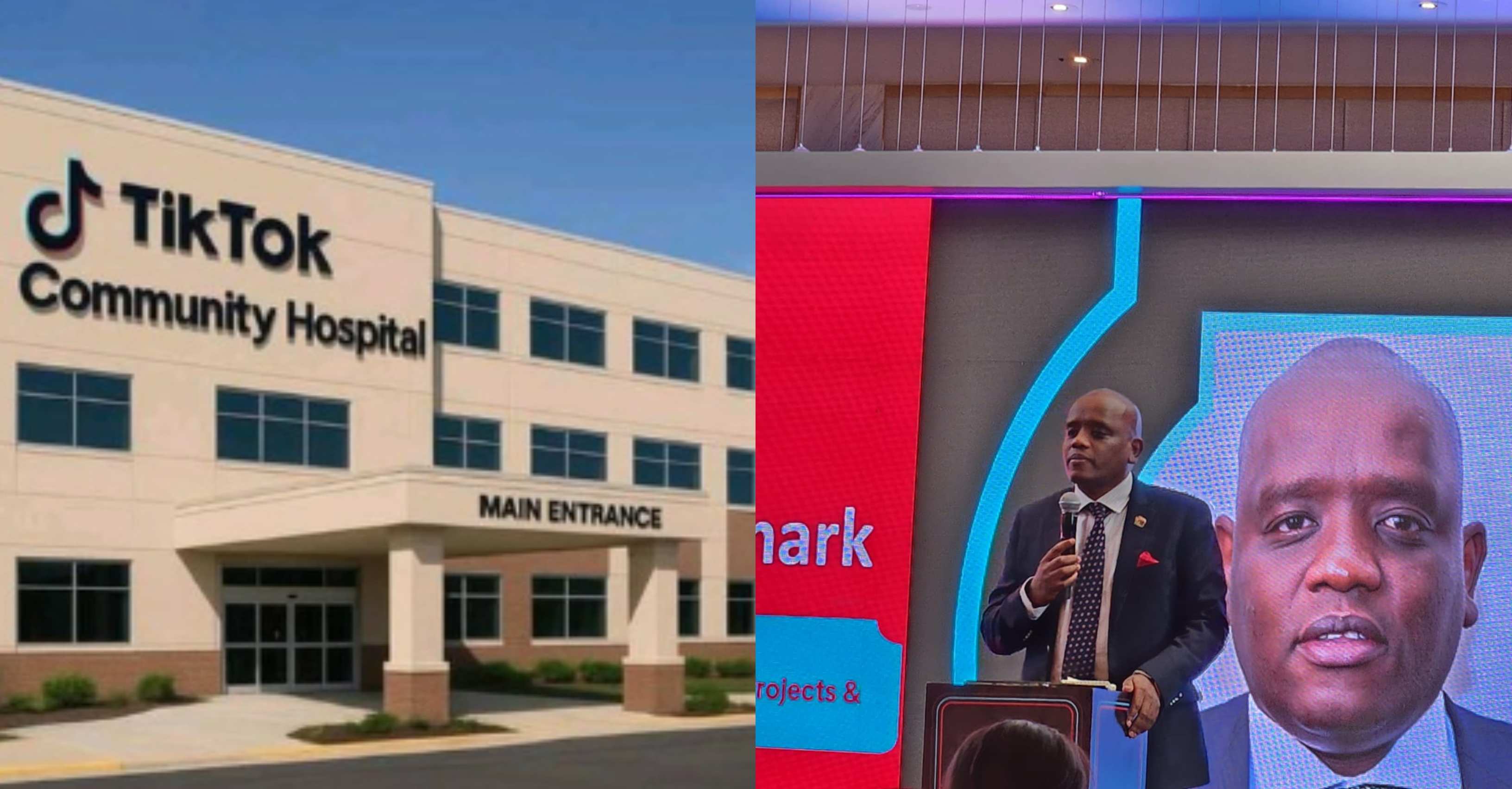
 A collage of the proposed TikTok Hospital my online users and Head of Presidential Special Projects and Creative Economic Coordination Dennis Itumbi speaking during the edit The creator's education day at Glee hotel, Kiambu county on October 1, 2025./PHOTO/SCREENGRAB/TRACY MUTHONI
A collage of the proposed TikTok Hospital my online users and Head of Presidential Special Projects and Creative Economic Coordination Dennis Itumbi speaking during the edit The creator's education day at Glee hotel, Kiambu county on October 1, 2025./PHOTO/SCREENGRAB/TRACY MUTHONI
A spirited debate has gripped Kenya’s online community after TikTok users announced plans to build a modern hospital funded through contributions from local creators.
The proposal has gone viral, with discussions on how millions of shillings could be raised to make the idea a reality.
For many, the plan reflects frustration with Kenya’s public healthcare system, where shortages of medicines, underfunded facilities, and prolonged strikes remain common challenges.
The debate was fueled by a recent case in which Kenyans raised money online to help a young man named Kaluma Boy help his ailing father.
In a series of raw and emotionally gripping TikTok videos, Kaluma documented his life as a young caregiver to his father, who suffered a stroke in 2024.
Kaluma, depicting daily struggles, sacrifices, and the lack of medical access in rural Kenya, struck a deep chord with many viewers.
The online community responded with unprecedented generosity, raising funds for his father’s care and elevating Kaluma to a symbol of Kenyan youth resilience.
Inspired by that success, TikTok creators are now proposing something bigger — a hospital that would provide affordable or even free services.
The conversation gained a new dimension when Dennis Itumbi, Head of Presidential Special Projects and Creative Economic Coordination, expressed support for the initiative.
Speaking during the TikTok Content Creators Workshop at Glee Hotel, Itumbi said the idea aligns with Kenya’s tradition of community-led health projects.
“Hospitals in this country have been created by Kenyans through Sadaka. That’s why you have faith and mission hospitals — about 100 hospitals built this way. President William Ruto is currently building 70 hospitals through the KDF. If TikTok creators can organise themselves and build another modern hospital, that would be brilliant,” said Itumbi.
His remarks have boosted the conversation, with many Kenyans viewing it as recognition of the creative economy’s potential beyond entertainment.
But alongside endorsing the hospital idea, Itumbi urged TikTok to address broader issues affecting local creators.
He called for fairer monetisation, lower thresholds for earnings, expansion of reward programs across Africa, and integration of M-Pesa for direct payments.
He also encouraged creators to form savings and credit cooperatives (SACCOs), saying this would help them access financing, protect themselves from exploitation, and even set the foundation for a “Creators’ Bank.”
While the proposal for a TikTok-funded hospital has been met with skepticism, particularly around costs, staffing, and sustainability, Itumbi’s endorsement has helped turn it into a mainstream national conversation.
Critics argue that running a hospital requires far more than fundraising, while supporters see it as an innovative example of digital communities addressing social gaps.
For many young Kenyans, the idea has become symbolic. It reflects not only frustrations with healthcare but also confidence in their ability to mobilize resources online for real-world change.
Whether or not the hospital materialises, the viral campaign has already highlighted the power of digital communities to push new solutions into the national spotlight.

















